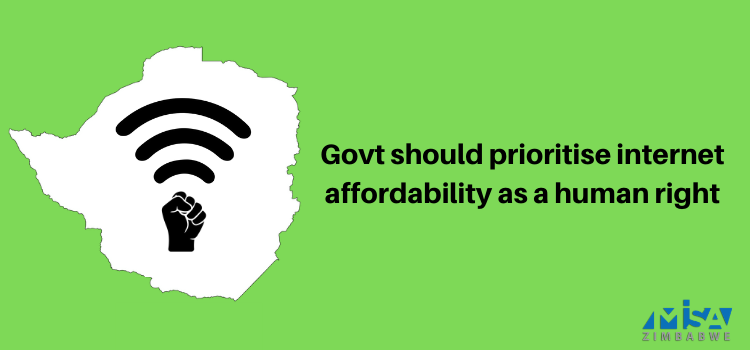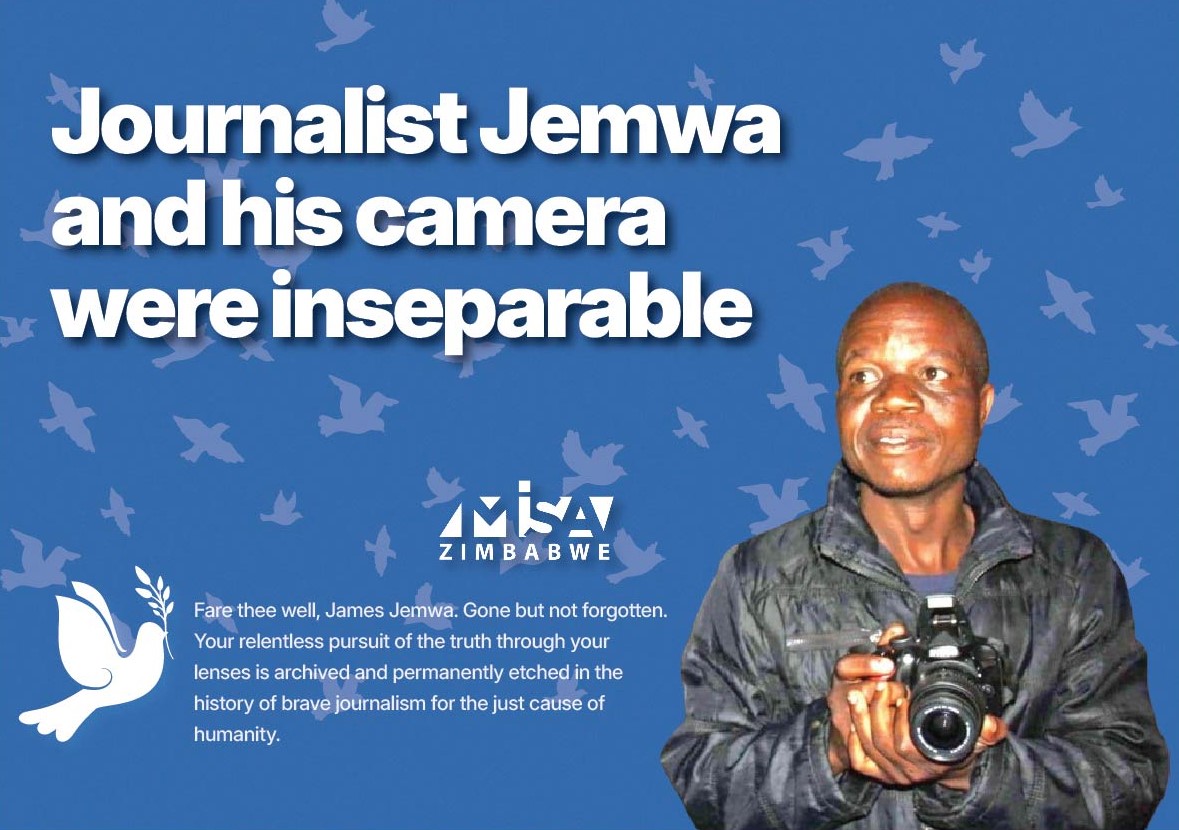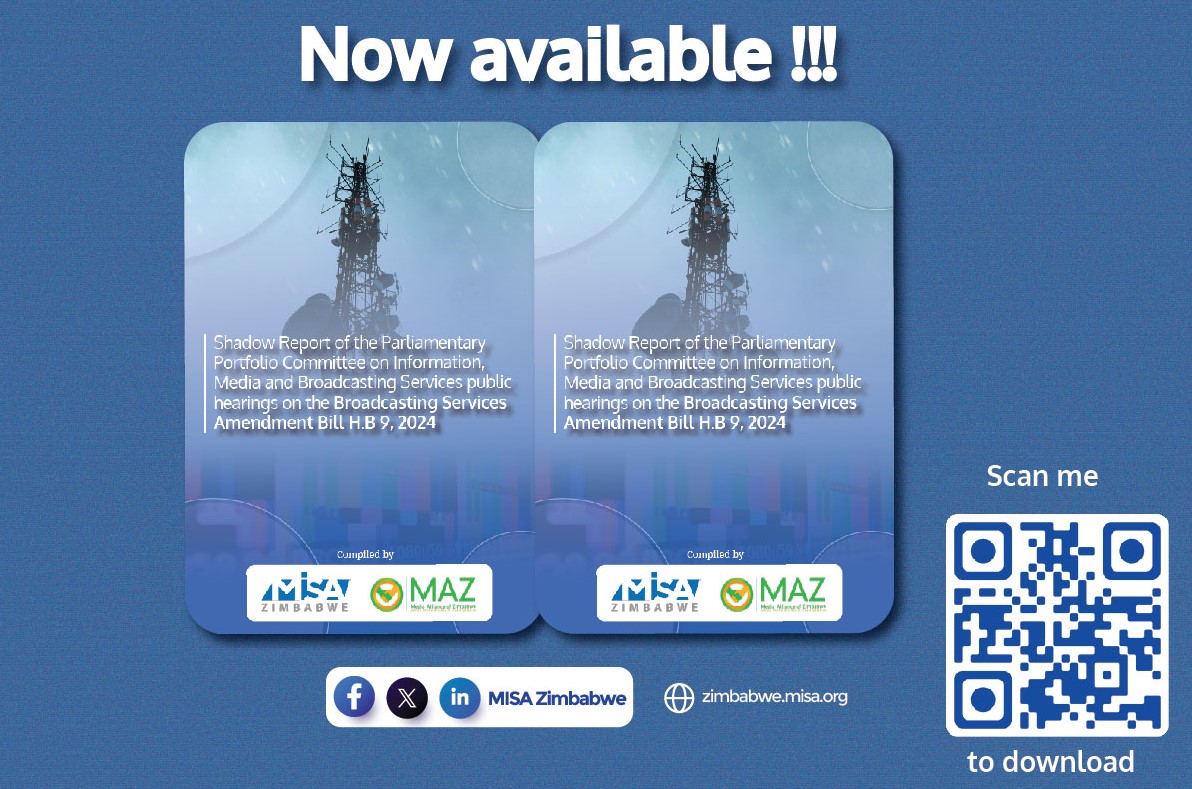MISA Zimbabwe is calling for a reduction of data prices and engaging various stakeholders to promote the constitutional right to access to information which plays a crucial role in promoting public health during this time.
Following the declaration of a national lockdown which started on 30 March 2020, many people have been forced to conduct business online as well as working and studying from home.
Internet access key to keeping citizens informed on COVID-19
As highlighted in our previous statement, internet access is key in keeping citizens informed on developments pertaining to the Coronavirus pandemic and measures being put in place to combat the virus. It is also a fundamental human right central to the exercise of free expression and access to information that empowers citizens to make informed choices and decisions on socio-economic and political matters that affect their daily lives.
As such, internet affordability becomes an urgent issue that the government, service providers and other critical stakeholders, should address to give effect to the constitutional provision that provides for the right to access to information.
The World Wide Web Foundation has also noted that the Web “is both a lifeline and a critical force in helping to curb the spread of the virus, providing vital public health information and helping us live virtually when meeting physically threatens human lives.”
#DataMustFallZim
MISA Zimbabwe under the auspices of the Media Alliance of Zimbabwe, together with various other stakeholders, has mounted the #DataMustFallZim campaign and the signing of a petition urging the Postal and Telecommunications Regulatory Authority of Zimbabwe (POTRAZ), and various mobile and internet service providers in Zimbabwe, to reduce data costs.
Internet access is not a luxury for the rich, but a fundamental human right critical in the fight against Covid-19.
More: Sign the #DataMustFallZim petition
It is, therefore, worrying that despite MISA Zimbabwe’s calls for the reduction of data prices, contrary developments have been noted. On 5 May 2020, Econet Zimbabwe, the nation’s largest mobile network provider, increased its data prices by up to 225%.
This development resulted in 25-gigabytes of mobile data being increased from ZW$400,00 to ZW$1,300.00. Ironically, in a letter dated 28 April 2020, Econet appealed to its suppliers to consider slashing prices by 20% due to increased operating costs.
However, it still proceeded to increase data tariffs by 10 times more, less than a week later! NetOne, the second-largest network, also increased its data prices on 6 May this year by between 12 and 100%. Although the third and smallest network provider Telecel, has not yet increased the prices of its data offerings, it would not be surprising for such a development to take place although the percentage increases are not likely to be as astronomic as those of the other two.
Broadband affordability
It has been noted that generally on the continent, the average price for one gigabyte of data ranges between 7.12% and 20% of the average monthly salary which is much higher than the defined affordability benchmark of 2% of average income.
Regarding the Zimbabwean context, it should be noted that the average salary in Zimbabwe is about $3,000 a month. According to a survey conducted by the Consumer Affairs section at the Ministry of Information, Publicity and Broadcasting Services, the food basket for a family of four rose from $4,656 in February to $6, 660 as of 11 April.
In light of the above, internet access has been reduced to becoming a luxury. The Affordability Drivers Index 2019 ranked Zimbabwe second, from Malawi, and being among the worst-ranked countries in Africa as far as broadband affordability is concerned.
Amendments to the African Declaration on Internet Rights and Freedoms
These developments are contrary to Principle 2 of the Revised African Declaration on Internet Rights and Freedoms which notes that access to the internet should be available and affordable to all persons in Africa without discrimination on any grounds such as status, of which this status can be economic.
The Human Rights Watch has also stated that “reliable and unfettered access to the internet should be maintained and steps should be taken to ensure internet access be available to people with low incomes.”
The Declaration also notes further that access to the internet plays a vital role in the full realisation of human development, and facilitates the exercise and enjoyment of a number of human rights and freedoms, including the right to freedom of expression and information.
Read: African Declaration on Internet Rights and Freedoms
In South Africa, Vodacom and MTN have decreased data prices for lower volume data bundles by up to 40% and 50% respectively. This is designed to ensure that more people than ever before are brought on board to access the internet. Additionally, the South African Coronavirus Resource Portal, is now zero-rated on all mobile networks.
Such steps are commendable and Zimbabwean operators could learn from these.
Reduction of data prices should be universal
Meanwhile, MISA Zimbabwe takes note of Econet’s E-Learning Data Bundle package offer which seeks to ensure that learners have access to discounted data which is necessary to facilitate online learning for students that have been affected by the pandemic.
However, MISA Zimbabwe is of the view that the reduction in data prices should be universal and applicable to all content instead of restricting it to educational information only.
It is commendable that POTRAZ has allocated the three mobile network operators in Zimbabwe free frequencies until the end of the year as part of its measures to ensure affordable data to internet users in the wake of the COVID-19 pandemic.
There is, however, urgent need to develop a holistic framework that takes into account the principles laid out in the African Declaration on Internet Rights and Freedoms and also caters for long term universal internet access.
The pandemic has already shown us that the provision of internet access services should not be determined solely for profit-making, but for the promotion of the exercise and enjoyment of human freedoms, including digital rights.
The government should also play a key role in that regard by promoting transparency on the state of the Universal Services Fund. We, therefore, urge various stakeholders in the telecommunications industry in Zimbabwe to develop a sustainable model that ensures universal internet access.
MISA Zimbabwe, through its #DataMustFallZim campaign, reiterates its call for the implementation of the Three As, namely: (Internet) Access, Availability and Affordability, to enhance citizens’ access to information and participation online.
Internet access is a fundamental human right! #DataMustFallZim.
//End













